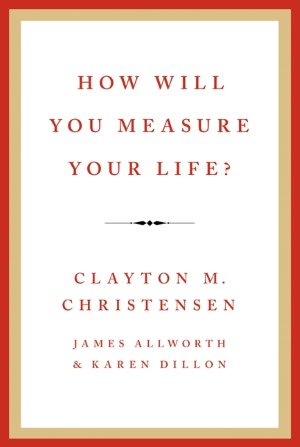Tim is one of the foremost academic experts on private equity – an industry that is often misunderstood by the general public and financial experts alike because it does not operate in the public domain. His private equity research has shown that, on average, historical private equity returns have outpaced public market returns by 3% to 4% each year, explaining the appeal of this little known industry. His research has demonstrated how the capital structure of leveraged buyouts can impact private equity performance. This research led the UK Treasury Select Committee to call upon him to provide evidence when it held investigations into the private equity industry. Tim speaks at industry and academic conferences around the world and teaches a number of private equity classes in association with organisations such as the CFA Institute.
Tim is the leading European expert on IPOs and has conducted extensive research on the conflicts of interest inherent in the relationships between investment banks, investors and companies. His research has revealed how and why international investment banks charge significantly higher IPO fees to American companies compared with their European counterparts. This research on IPO discrepancies was published in the Journal of Finance and has attracted considerable media attention from publications such as The Economist, Reuters, The Financial Times, The New York Times, Wall Street Journal, Bloomberg, CNN, Time and various appearances on business new channels.
Tim is Chairman of the economic consulting firm Oxera and an academic advisor to KPMG’s Global Valuation Institute. He has consulted for a large number of companies, regulators, government agencies and industry associations. He is also a Professorial Fellow at Keble College, University of Oxford, a Research Fellow of the Centre for Economic Policy Research and a Research Associate of the European Corporate Governance Institute.
Tim joined the finance faculty at Saïd Business School in 2000. He previously worked in the economics department at the University of Oxford, which he joined in 1987. He has also spent periods as a Visiting Professor at Dartmouth College. He studied economics as an undergraduate at Cambridge University, before going as a Thouron Fellow to the University of Pennsylvania, where he obtained a Masters in Economics. He then returned to the UK and obtained a DPhil in Economics from Oxford.
Areas of expertise include:
- Private equity
- IPOs
- Institutional asset management
- Regulation of the cost of capital
Research
Tim’s research focuses on four key fields: initial public offerings (IPOs), private equity, institutional asset management and regulation and the cost of capital. His research is based upon extensive financial data that he collects by forging close relationships with industry participants. He has built a reputation in the industry for his ability to collect critical, previously inaccessible, data from institutional investors and other players in the financial industry. Tim’s research focuses on analysing data to understand the functioning of the financial industry.
Throughout his academic career Tim has been recognised for his groundbreaking research. His work has been published in leading journals including the Journal of Finance, Review of Financial Studies, Journal of Financial Economics, Journal of Corporate Finance, Economic Journal and the European Economic Review. He is a frequent keynote speaker at academic and practitioner conferences and his work has won various prizes. For instance, Tim and Howard Jones were awarded the best paper prize in 2007 by European Financial Management for their work on “The economics of IPO stabilization, syndicates and naked shorts“. And his paper with Tarun Ramadorai on the costs and benefits of regulatory standards imposed by stock exchanges, Does one size fit all? The consequences of switching markets with different regulatory standards, was awarded the best paper prize at the “Financing Public and Private Firms: Fraud, Ethics and Regulation” conference co-sponsored by the CFA, Financial Analysts Journal, and the Schulich School of Business conference in April 2012.
IPOs and Conflicts of Interest
Tim’s research into IPOs addresses the incentives and conflicts of interests that investment banks face when dealing with investors and issuing companies. For example, a recent paper titled “Why Don’t U.S. Issuers Demand European Fees for IPOs?”, published in the Journal of Finance, examines the inherent inequality in the investment banking system which grants European companies cheaper IPO fees compared with their US counterparts. Tim is one of the few academics in the world to focus on conflicts of interest – which have become increasingly apparent in recent years – making him a key source of insight for policy makers, media commentators, the industry, and others with an interest in IPOs.
Private Equity
Tim’s private equity research explains how the private equity industry operates and examines how to benchmark private equity returns against public markets. His research, based on extensive, often proprietary, data sets has refuted previous academic claims about the poor returns earned by investors in private equity funds. His research demonstrates that, on average, historical private equity returns have outpaced public market returns by a significant margin. His research also examines the role of leverage in private equity and how it affects financial performance. These investigations into private equity returns have led Jenkinson to analyse the venture capital industry as well, making him an expert in this important field.
Institutional Asset Management
An emergent theme in Tim’s research focuses on the investment decisions of institutional investors such as asset managers, pension fund trustees and those that advise them – in particular investment consultants. Again, he has focused on the potential conflicts of interest that can face the various parties, and how this can lead to unnecessary complexity and higher costs.
Regulation of the Cost of Capital
Tim has conducted extensive research on the cost of capital for businesses, specifically focusing on regulated industries. He has also contributed some important research to the question of whether higher regulatory standards are good for the investor. He has acted as an expert witness on a number of important cases involving the cost of capital as well as in his other areas of expertise.










































